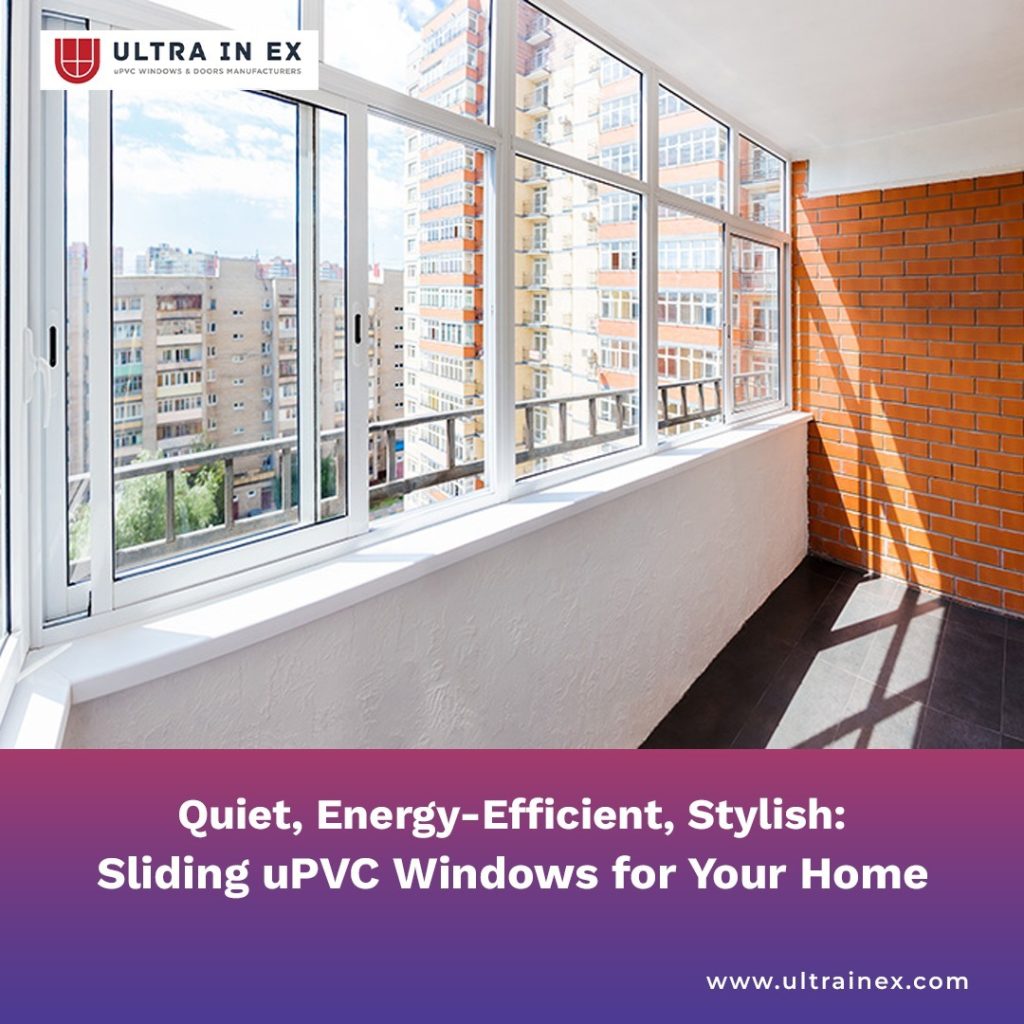
Home sliding uPVC windows are a popular choice for many homeowners due to their durability, energy efficiency, and low maintenance requirements. Here’s a quick overview of what you might want to consider about them. Sliding uPVC windows are designed to minimize heat transfer, keeping your home warm in winter and cool in summer, reducing energy bills. Sliding uPVC windows can significantly reduce outside noise, creating a more peaceful living space. Multi-point locking systems and robust uPVC frames ensure enhanced security for your home. Sliding uPVC windows come in various styles, colors, and finishes, matching your home’s unique architecture. Sliding windows optimize space, as they don’t protrude outward like traditional windows.
Benefits:
- Durability: uPVC is resistant to weathering, rot, and corrosion. This makes sliding uPVC windows long-lasting and ideal for various climates.
- Low Maintenance: Unlike wooden frames, uPVC windows don’t need regular painting or sealing. A simple clean with soapy water is usually sufficient.
- Energy Efficiency: uPVC windows often come with multi-chambered profiles that help in insulating your home and reducing energy bills.
- Noise Reduction: They can also offer good sound insulation, which is beneficial if you live in a noisy area.
- Smooth Operation: Sliding windows are easy to operate and don’t require the swing space that casement windows do. They’re ideal for areas where space is limited.
- Security: Modern sliding uPVC windows can be equipped with multi-point locking systems to enhance security.
Considerations:
- Aesthetic Limitations: Some people find uPVC windows less aesthetically pleasing compared to wood or aluminum. However, they come in various styles and colors to suit different tastes.
- Sliding Mechanism: Ensure that the sliding mechanism is high quality to avoid issues with smooth operation and durability over time.
- Installation: Proper installation is crucial to ensure energy efficiency and longevity. It’s best to have them installed by professionals who are familiar with uPVC window systems.
- Temperature Sensitivity: While uPVC is generally durable, extreme temperatures can affect its performance. High temperatures might cause it to expand or warp, although this is less common with high quality uPVC.
- Recycling: uPVC is not biodegradable, so it’s worth considering its environmental impact. However, many uPVC products are recyclable.
Overall, sliding uPVC windows can be a practical and stylish choice for many homes, offering a blend of performance and ease of use
